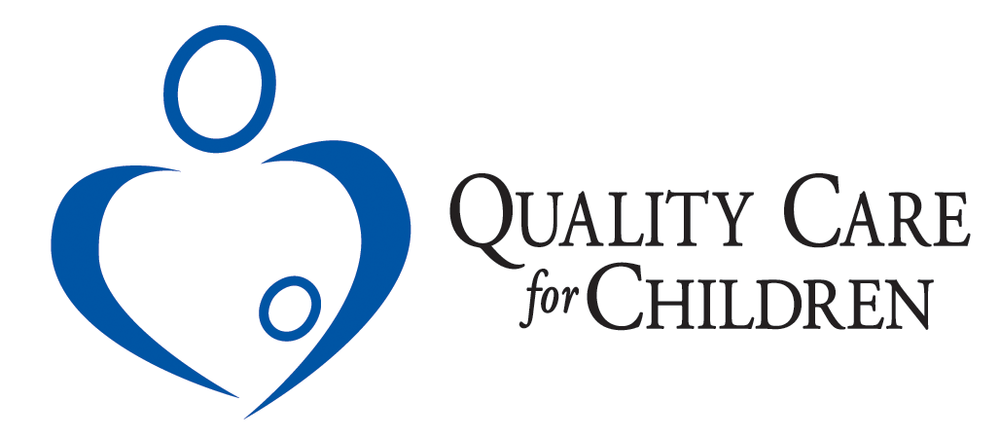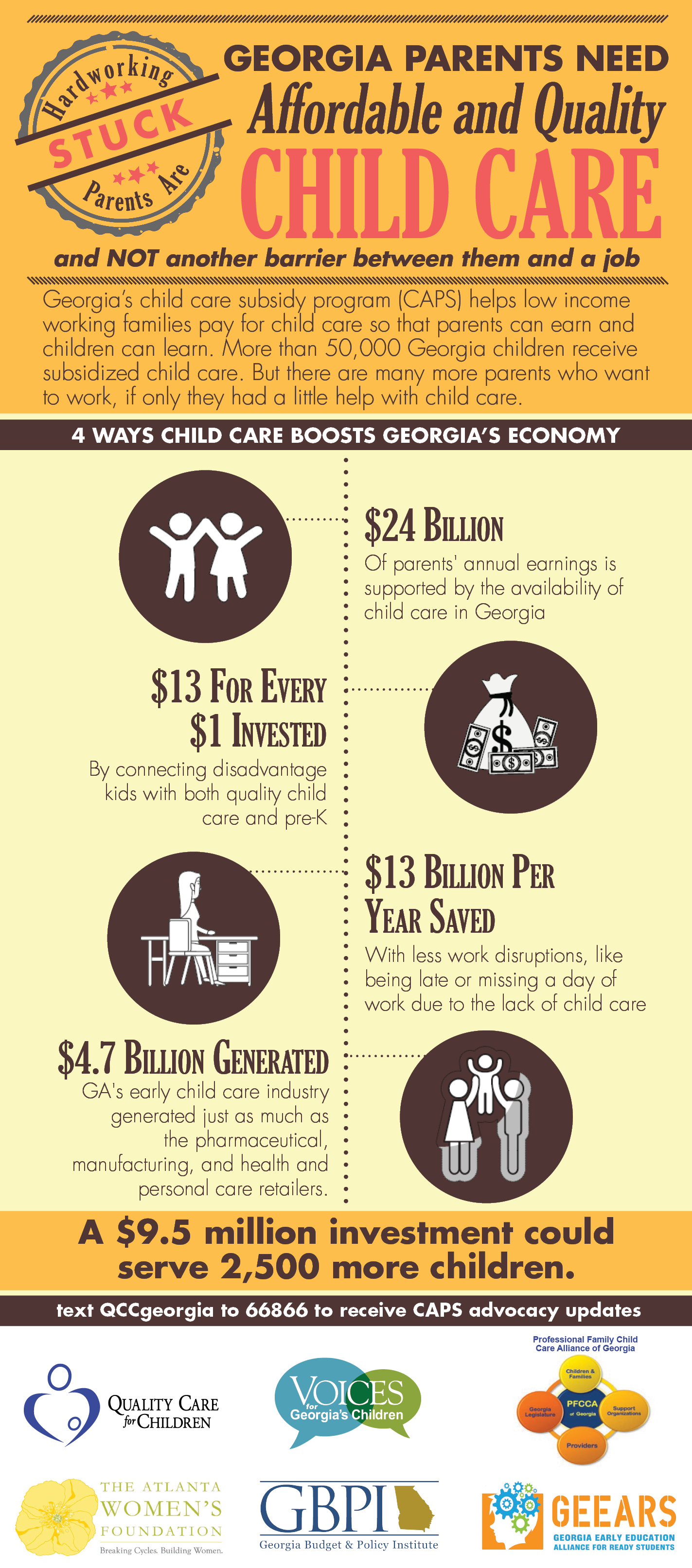advocate for Georgia's earliest learners
Quality Care for Children is participating in a coalition that is calling for additional funding for child care subsidies in Georgia so that more parents can work and get ahead and their children can receive the quality child care they need to be prepared for success in school and beyond. Currently, due to funding limits, Georgia’s Child Care and Parent Services program (CAPS) serves approximately 50,000 of the approximately 680,000 low income children needing quality child care.
Maintaining level funding for care assistance is risky for Georgia’s businesses, economy and kids. We need a carefully measured increase for a multiple year period, starting with $9.5 million in 2019.
State Investments in Quality Child Care Pay Off
Families who earn low incomes and receive financial help with child care are more likely to get and keep stable jobs. One recent study found single mothers of young children who received help paying for child care were 39 percent more likely to still be employed after two years compared to those who had not gotten financial help.[1]
Nobel Prize-winning economist James Heckman found that when moms who struggle to make ends meet get access to quality child care, they out-earn their peers over time, setting up their families for economic stability.
Connecting disadvantaged kids with both quality child care and Pre‑K yields a whopping $13 for every dollar invested.[2]
A conservative estimate of the level of parents’ annual earnings supported by the availability of child care in Georgia is $24 billion.[3]
The Child Care and Parent Services (CAPS) program:
Keeps Georgians on the Job
The average cost of center-based child care in Georgia is more than the average cost of instate college tuition. The high cost of quality child care causes families to choose between quality child care and working enough to make ends meet. The research is conclusive: affordable, quality child care boosts families’ economic security across generations. When parents can count on quality care, they stay in the workforce and more deeply invest in their families and communities.[4]
Boosts Georgia’s Economy
Our state’s investments in child care also support Georgia’s child care industry—a major contributor to our economy. Georgia’s early care and education industry generated $4.7 billion in economic activity in 2013, putting it on par with industries such as pharmaceutical manufacturing, printing, and health and personal care retailers.[5] And when parents stay on the job they’re able to invest in their communities through taxes.
Improves Children’s Education
Investing in kids early yields high dividends in their educational outcomes. Eighty-five percent of a child’s brain development happens in the first three years of life.[6] It is no wonder that children in quality early care and education do better—they are more likely to enter school well-prepared, attend and graduate college, and earn more as adults.
Beyond early care programs, the program also provides school-age children a safe place to go before and after school. These programs have been shown to increase kids’ school-day attendance and to close the achievement gap between low-income students and their peers.[7]
[1] Child Care Is Fundamental to America’s Children, Families, and Economy (2017). Washington, DC: National Women’s Law Center.
[2] Garcia, J.L., Heckman, J.J., Leaf, D.E. & Prados, M.J. (2016). The Life-cycle Benefits of an Influential Early Childhood Program. Chicago, IL: The University of Chicago. On behalf of the Human Capital and Economic Opportunity Global Working Group.
[3] Georgia State University’s Andrew Young School of Policy Studies and the University of Georgia’s Carl Vinson Institute of Government (2016). Economic Impact of the in Georgia Early Care and Education Industry. Atlanta, GA & Athens, GA.
[4] Heckman, J.J. (2010). Invest in Early Childhood Development: Reduce Deficits, Strengthen the Economy. Chicago, Illinois: The Heckman Equation.
[5] Georgia State University’s Andrew Young School of Policy Studies and the University of Georgia’s Carl Vinson Institute of Government (2016). Economic Impact of the in Georgia Early Care and Education Industry. Atlanta, GA & Athens, GA.
[6] Institute of Medicine. (2000). From Neurons to Neighborhoods: The Science of Early Childhood Development. Washington, DC: The National Academies Press.
[7] Garcia, J.L., Heckman, J.J., Leaf, D.E. & Prados, M.J. (2016). The Life-cycle Benefits of an Influential Early Childhood Program. Chicago, IL: The University of Chicago. On behalf of the Human Capital and Economic Opportunity Global Working Group.


